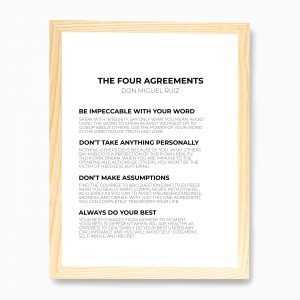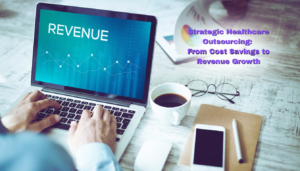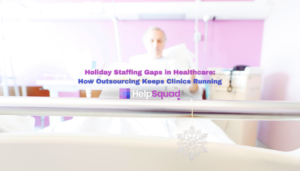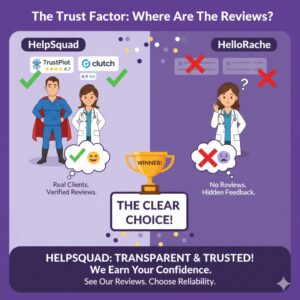9 (Non) Business Books to Read For Better Relationships in the Workplace
21 Jul 2020 By: Natalya Bucuy
Updated
“Never trust anyone who didn’t bring a book with them.” ~ Lemony Snicket.
Video might have killed the radio star, but it will never kill books.
Even in the age of everything digital and many things automated, when it comes to real advice, people still turn to books. In the year 2019, 72% of adults read at least one book. In that same year Americans spent an average of annual $110 on reading. (Statista)
The professional development sector at any book store never has a shortage of business books to read. There is no doubt those publications deliver great insights from top experts helpful to entrepreneurs everywhere. And any one of those experts will testify that relationships are the most important aspect of business.
Successful businesses build strong relationships with their customers as well as with team members.
“As one of my mentors has always expressed to me, behind every business there are people, and people function in society via relationships.” (Tina Hovsepian, Forbes)
Relationships building is definitely not a one-and-done thing. It’s a continuous development with various changes and developments. Whether it’s between employees or between the company and the customers, relationships take time and effort to build, maintain, and nurture.
How does one do that?
We turned to the ages-old medium – books – to find out. But decided to think a bit outside the business literature book shelf. We gathered 9 (non) business books to read to improve relationships – employee, customer, and even personal. These books come from authors and experts in various fields – psychology, sociology, spirituality, and even from the kids corner. Many business leaders credit their interpersonal growth to influential self.help books that provide insights into human behavior and relationships. All of these books teach lessons that are not only applicable but extremely important in the workplace.
So get your reading hats on and let’s dive in.
1. Stone Soup (a folk story)
Recommended by Jackson Kerchis.
“There is no secret, but this is certain: it is only by sharing that we may make a feast”.
This is probably one of the most “non business books to read” recommendations, but it’s worth it. The origins of this children’s story trace back to old French folk tales. It has variations in different languages and cultures, but teaches some universal lessons in all versions. Interestingly, the story touches on one of the psychological strategies in marketing: the social proof.
In the story, a village comes together to make stone soup with visiting strangers. At first, the villagers are reluctant to share food. Yet, when the benefits of doing things together become apparent, the villagers have a change of heart. It’s a quick read with some important takeaways about collaboration, entrepreneurship spirit, and persuasion.
Buy the book or give it a quick listen.
2. The Subtle Art of Not Giving a F*ck by Mark Manson.
Recommended by HelpSquad founder, Michael Kansky.
“If you think about a young child trying to learn to walk, that child will fall down and hurt itself hundreds of times. But at no point does that child ever stop and think, ‘Oh, I guess walking just isn’t for me. I’m not good at it.’ Avoiding.”
Besides having a title that just makes one want to find out what it’s all about, this book offers a seemingly counterintuitive approach to business and to life in general. Manson digs deep and presents evidence that suffering has value and problems make us happy.
Manson teaches us why and how to embrace failures and how to do it in a way that encourages and motivates others. He encourages us to give up on perfectionism, a true productivity killer, and a parent of procrastination, a common problem in the workplace. The answer to many problems we experience in the workplace is to not give a f’uck and Mark Manson teaches us how.
We get caught up on the feelings surrounding low self-esteem – sad, helpless & so on. But feelings are temporary. So by accepting that we just feel shitty for whatever reason can have a paradoxical effect, taking the focus away from the fleeting feeling rather than amplifying it.
— Mark Manson (@IAmMarkManson) July 19, 2020
3.Daring Greatly by Brene Brown
Recommended by Insight Connection.
“Worrying about scarcity is our culture’s version of post-traumatic stress. It happens when you’ve been through too much, and rather than coming together to heal (which requires vulnerability), we’re angry and scared and at each other’s throats.”
Vulnerability is closely linked to shame, another uncomfortable feeling. But what exactly is shame? Daring Greatly defines it as “the fear of disconnection. It is “the intensely painful feeling or experience of believing that we are flawed and therefore unworthy of love and belonging”. The cure for shame, then, is vulnerability.
The book teaches us the power of vulnerability and how it can transform our personal and professional relationships. Vulnerability in the workplace, Brown argues, it is not only appropriate, it’s necessary. It facilitates creativity, collaboration, and innovation. This is one non business book to read that can really relationships in the workplace to the next level.
4. Why Won’t you Apologize by Dr. Harriet Lerner.
Recommended by Brene Brown.
“Letting go of anger and hate requires us to give up the hope for a different past, along with the hope of a fantasized future. What we gain is a life more in the present, where we are not mired in prolonged anger and resentment that doesn’t serve us.”
If being vulnerable is a door to successful business, apologizing is a key to that door. As Lerner writes, to admit one’s fault and to listen and understand another human’s pain takes a strong sense of self-esteem and a whole lot of courage. But apologizing is a crucial part of relationship building, in a workplace as well as anywhere else in life. This book provides a unique look at the essential practice of apologizing. It teaches how we can restore and improve relationships and build stronger social connections.
5. UnOffendable: No Offense. None Taken by Ryan Leak.
Recommended by Barbara Teszler.
“The strategy of the enemy is to put distance between us and the people we love the most, one offense at a time.”
In this book, viral documentary-maker, Ryan Leak argues that being unoffendable isn’t about never getting offended. It’s about not staying offended. According to Leak, one of the greatest threats to our happiness is holding on to an offense. One offense has the ability to ruin someone’s day, week, month, year, or for some, their entire life. UnOffendable is an outline of how the things in life that have hurt us most can shape our confidence and help us become the people we’ve always wanted to be. Being unoffendable is a choice. And when we make it, we give every relationship in our worlds – professional as well as personal – a chance to thrive.
6. The Four Agreements Don Miguel Ruiz
Recommended by HelpSquad marketing coordinator, Shelby Shaffer.
“The most important agreements are the ones we make with ourselves. In these agreements we tell ourselves who we are, how to behave, what is possible, what is impossible. One single agreement is not such a problem, but we have many agreements that come from fear, deplete our energy and diminish our self-worth.”

The Four Agreements reveals the source of self-limiting beliefs that rob us of joy and create needless suffering. Based on ancient Toltec wisdom, the author offers a powerful code of conduct that can rapidly transform our lives to a new experience of freedom, true happiness, and love. The book outlines how every day we can make four agreements with ourselves. Be impeccable with your word. Don’t take anything personally. Don’t make assumptions. Always do your best. Sounds simple? It’s anything but.
7. Spiritual Practice for Crazy Times by Philip Goldberg
Recommended by Beth Grossman
“The key ingredient in a recipe for equanimity is spiritual practice. And in crazy times like ours, we need prayer, meditation, mindfulness, and other practices more than ever. They are not luxury items like a vacation; they’re more akin to necessities.”
This book is a manual for building and sustaining a foundation of peaceful strength in an ever-changing world, something entrepreneurs can find quite useful. It provides powerful techniques to help ward off the ravages of modern life and remain grounded and centered in stormy situations. By learning how to take refuge in the stillness within, we can build a solid foundation for bringing some sanity to the crazy world. Cultivating mindfulness with the skills this book offers can help us deal with stresses in the workplace as well as outside of it.
8. Broadcasting Happiness by Michelle Gielan.
Recommended by Huffington Post.
“Positivity is the world’s most underutilized, naturally occurring resource available to fuel success and forward progress.”
Happiness is an inside job, as the famous saying goes. This book takes that notion a bit further. Not only can people cultivate positivity within themselves by focusing on the good, they can share it with the world through small daily actions. The book teaches how to empower ourselves with the knowledge that we can create the world we want to live in by training our minds against negativity. We have the power to affect change in our workplace, our communities, and our families, as well as ourselves, Gielan teaches.
Want to feel happier today? A new study identifies the daily activities the happiest among us do during a time of distancing. https://t.co/dgQ3edt6aj
— Michelle Gielan (@MichelleGielan) July 4, 2020
9. Big Magic: Creative Living Beyond Fear By Elizabeth Gilbert.
Recommended by yours truly, HelpSquad marketing coordinator, Natalya Bucuy.
“Recognizing that people’s reactions don’t belong to you is the only sane way to create. If people enjoy what you’ve created, terrific. And if people ignore what you’ve created, too bad. If people misunderstand what you’ve created, don’t sweat it. And what if people absolutely hate what you’ve created? What if people attack you with savage vitriol, and insult your intelligence, and malign your motives, and drag your good name through the mud? Just smile sweetly and suggest – as politely as you possibly can – that they go make their own fucking art. Then stubbornly continue making yours.”
“Be the weirdo who dares to enjoy”
This is one of my personal favorites and I have struggled to wait until the end of the article to recommend it. Seemingly one of the most non business books to read, Big Magic is a true guide to creative living. I personally believe that no success can come from or within passionless existence. We simply must do what our heart desires in whatever ways possible. That is not to say we must quit our day jobs and run off into the field of flowers to write poetry. In fact, Gilbert specifically warns against that (she herself kept her day job well until after her bestselling memoir, Eat, Prey, Love hit the bookshelves.)
There is a chapter in Elizabeth Gilbert’s book, Big Magic called Nobody’s Thinking About You. It is just over a page and its message is simple. pic.twitter.com/7PKxu1x9op
— Upasana (@srisanama) July 9, 2020
She does, however, advocate for creative living beyond fear. To be human is to create. We all crave creation, be it cooking, painting, writing, or growing potatoes on the weekend. To be happy is to follow that craving, feed it, and nourish it. Gilbert teaches us how to be mindful of the fear that holds us back. Then we can go create without letting it control us. If we do, we will enjoy a great relationship with ourselves and, subsequently, with our others. And that is why this incredible work makes the list of non business books to read to create great relationships with our customers and colleagues.
Non Business Books to Read: Passion and Happiness for Better Relationships
Perhaps you notice that this list of non business books to read has an ongoing theme. It is that of connection with others, but, most importantly with oneself. All the works mentioned above teach us how to create better relationships with our surroundings by first looking within ourselves.
If we have strong self esteem, follow our passions, live with our fear without letting it take the driver’s seat, we become more in touch with ourselves. And if we do, we become better communicators, coworkers, and leaders to others.
Happy reading, fellow boor warms!


